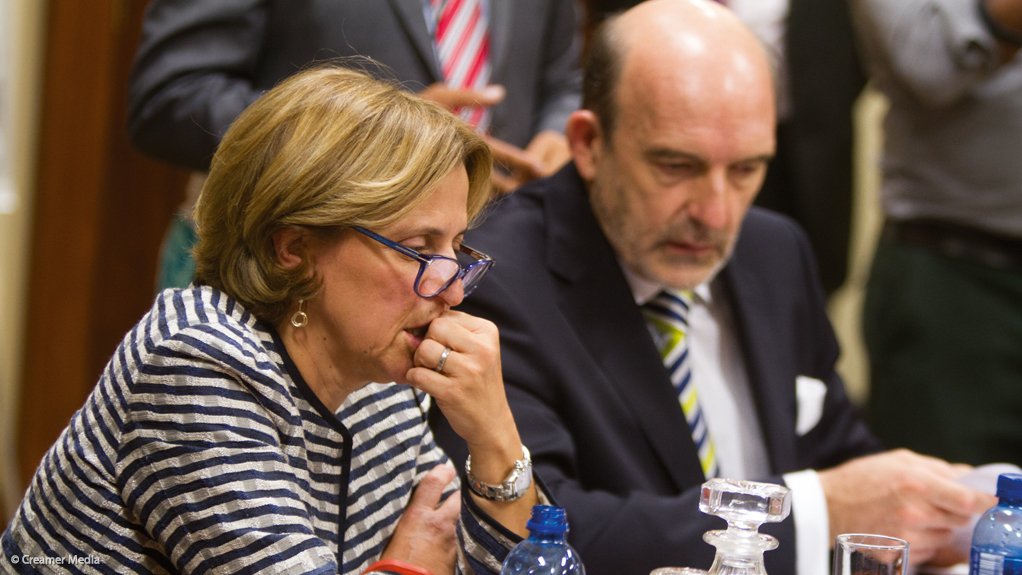ABSA CEO Maria Ramos said the bank will seek a punitive cost order if Public Protector Busisiwe Mkhwebane continues to defend the Bankorp/CIEX report.
This was revealed in ABSA’s responding affidavit in the North Gauteng High Court on Monday, which accused Mkhwebane of unlawful conduct in her legal defence of the report.
The affidavit follows that of Sarb’s responding affidavit on Monday, which accused Mkhwebane of making false statements in a back-and-forth legal tussle over her report into Sarb’s Bankorp bailout in the 1990s.
Mkhwebane's 2017 report found that Sarb’s R1.125-billion bailout of Bankorp between 1985 and 1995 was unlawful and that ABSA – which bought the bank in 1992 – should pay back the money.
The report saw ABSA and Sarb seek a court review to set it aside, which has seen a back-and-forth of court papers.
Ramos, representing ABSA in the affidavit, said Mkhwebane’s “continued defence of the final report is manifestly unsustainable.
“Accordingly, if she continues to oppose this application in the face of the evidence of her unlawful conduct, ABSA intends to seek a punitive cost order.”
In its affidavit, Sarb asked the court to order Mkhwebane to pay costs out of her own pocket, as well as a declaratory order from the court that she has abused her office.
Ramos said that Mkhwebane’s answering affidavit retreats from the report and “seeks to introduce novel justifications and reasoning in support of the unlawful remedial action”.
Ramos said legal advice reveals that the “introduction of new reasons and evidence that did not inform the decision under review is not permissible”.
She said that the “belated attempts to reconstruct a basis for the remedial action and the findings in the final report cannot succeed”.
In her answering affidavit, Mkhwebane insists that Absa benefited from the bailout of Bankorp in the 1980s, and that the 2002 expert panel led by Judge Dennis Davis simply got it wrong.
However, Ramos said this was not so.
“It is not correct for the Public Protector to assume that the mere fact a merger took place was in itself a benefit – either at all, or at least a benefit caused by financial assistance.
“The fact that the financial assistance would continue was taken into account in determining the price of the acquisition: the price ABSA paid took account of the financial assistance.
“The bad debts owing to Bankorp were therefore off-set by the provision of the financial assistance – ABSA paid for this and hence did not benefit from the financial assistance.
“Furthermore, the immediate financial impact of the acquisition of Bankorp was that ABSA had to write off a further R288-million of Bankorp bad debts. The acquisition was therefore financially detrimental for ABSA in the short term.”
Ramos said that Mkhwebane had never sought to evaluate or obtain ABSA’s response on the overall benefit or detriment caused to ABSA over the long term due to the acquisition of Bankorp.
In the responding affidavit, Sarb accused Mkhwebane of breaking “virtually every rule that applies to an organ of state when its decision is taken on review”.
“This conduct is unbecoming of the important office that Ms Mkhwebane occupies,” Johannes de Jager, Sarb’s general counsel in its legal services department, said on behalf of Sarb in the affidavit. “It amounts to an abuse of her office.”
EMAIL THIS ARTICLE SAVE THIS ARTICLE
To subscribe email subscriptions@creamermedia.co.za or click here
To advertise email advertising@creamermedia.co.za or click here











